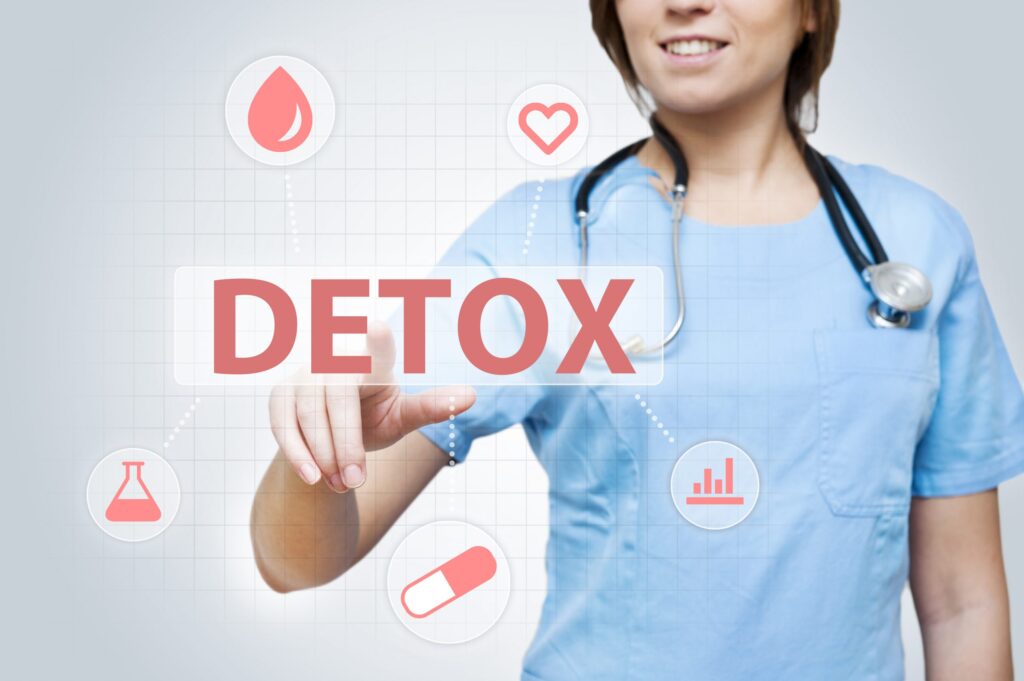What Is a Medical Detox and Who Would Benefit from It?

In the realm of addiction recovery, one of the initial and crucial steps is the process of medical detoxification, often referred to as medical detox. This procedure is a critical starting point for individuals seeking to overcome their dependence on substances such as drugs or alcohol. This essay delves into the concept of medical detox, its significance, and the individuals who would benefit from this essential phase on their path to recovery.
Understanding Medical Detox
Medical detox is a medically supervised process designed to help individuals safely and comfortably withdraw from addictive substances. It involves the systematic removal of the toxic substances from the body while managing and alleviating the withdrawal symptoms that may arise during this period. Medical detox is typically conducted in a specialized detox facility, where healthcare professionals closely monitor the patient’s physical and mental well-being.
The Importance of Medical Detox
- Safety: The primary goal of medical detox is to ensure the safety and well-being of the individual. Withdrawal from certain substances can be physically and emotionally intense, and medical supervision is essential to manage potential complications.
- Minimizing Discomfort: Withdrawal symptoms can vary widely depending on the substance and the individual’s history of use. Medical detox utilizes medications and supportive care to minimize discomfort, making the process more manageable.
- Reducing Relapse Risk: Withdrawal symptoms can be overwhelming, often leading individuals to relapse to relieve their discomfort. Medical detox helps individuals navigate this challenging phase without resorting to substance use.
Who Would Benefit from Medical Detox?
- Severe Physical Dependence: Individuals who have developed a severe physical dependence on substances like alcohol, opioids, or benzodiazepines may require medical detox. Abrupt cessation of these substances can lead to dangerous withdrawal symptoms, including seizures and delirium tremens.
- History of Previous Withdrawal Complications: Those who have experienced complications during previous attempts to quit substances are at a higher risk during withdrawal. Medical detox can provide a safer environment with professional medical care.
- Co-occurring Medical Conditions: Individuals with pre-existing medical conditions, such as heart problems or diabetes, require specialized care during withdrawal to prevent any exacerbation of these conditions.
- Mental Health Concerns: Individuals with co-occurring mental health disorders, such as depression, anxiety, or bipolar disorder, can benefit from medical detox. These conditions can intensify during withdrawal, making professional supervision crucial.
- Polydrug Use: Individuals who use multiple substances simultaneously, known as polydrug use, may require medical detox due to the complexity of withdrawal symptoms from various substances.
The Process of Medical Detox
- Assessment: The process begins with a comprehensive assessment of the individual’s medical history, substance use, and overall health. This evaluation informs the treatment plan.
- Medical Supervision: Throughout the detoxification process, medical professionals closely monitor vital signs, administer medications as needed, and address any complications that may arise.
- Symptom Management: Medications are administered to manage withdrawal symptoms such as nausea, vomiting, anxiety, insomnia, and pain. This helps individuals go through the process with greater comfort.
- Nutritional Support: Adequate nutrition and hydration are crucial during detox to support the body’s healing process and replenish any nutrients that may have been depleted due to substance use.
- Emotional Support: Alongside the physical aspect, emotional support is provided to help individuals cope with the psychological challenges that often accompany withdrawal.
Addiction is a formidable adversary that takes a toll on both the body and the mind. The journey towards recovery often begins with a crucial phase known as medical detoxification, or medical detox. This process is reserved for individuals whose dependency on substances has reached a point where quitting abruptly could lead to severe physical and psychological consequences. This essay delves into the circumstances that warrant the necessity of medical detox and sheds light on the signs and substances that indicate when this specialized form of detoxification is essential.

Recognizing the Need for Medical Detox
Medical detox becomes necessary when an individual’s body has developed a physical dependence on substances. This dependence manifests through a series of physical and psychological symptoms when the substance is removed. The severity of these symptoms varies depending on factors such as the substance of abuse, the duration of use, and the individual’s overall health. In cases where the withdrawal symptoms are intense and potentially dangerous, medical detox becomes not only beneficial but also life-saving.
Signs that Indicate the Necessity of Medical Detox
- Severe Withdrawal Symptoms: Some substances, such as alcohol, benzodiazepines, and opioids, can lead to severe withdrawal symptoms. These symptoms may include seizures, hallucinations, delirium, and intense cravings. Medical supervision is crucial to ensure these symptoms are managed safely.
- History of Previous Withdrawal Complications: Individuals who have experienced complications during previous attempts to quit substances are at a higher risk during subsequent withdrawal. Medical detox provides a controlled environment with expert medical care to manage potential complications.
- Co-occurring Medical Conditions: Those with pre-existing medical conditions such as heart problems, diabetes, or respiratory issues require specialized care during withdrawal to prevent exacerbation of these conditions.
- Mental Health Concerns: Withdrawal symptoms can exacerbate existing mental health conditions, leading to intensified symptoms of depression, anxiety, or other psychological disorders. Medical detox ensures proper management of both withdrawal and mental health challenges.
Substances that Often Require Medical Detox
- Alcohol: Alcohol withdrawal can lead to severe symptoms, including delirium tremens, seizures, and high blood pressure. Medical detox is often necessary to manage these risks.
- Benzodiazepines: Abrupt cessation of benzodiazepines can result in life-threatening withdrawal symptoms, making medical detox essential for safety.
- Opioids: Opioid withdrawal symptoms can be excruciating and include severe pain, nausea, vomiting, and diarrhea. Medical detox helps manage these symptoms effectively.
- Barbiturates: Withdrawal from barbiturates can cause seizures and other complications. Medical detox provides the necessary medical support.
The Process of Medical Detox
- Assessment and Evaluation: The process begins with a thorough evaluation of the individual’s medical history, substance use, and overall health. This assessment informs the customized treatment plan.
- Constant Medical Supervision: Throughout medical detox, healthcare professionals monitor vital signs, administer medications, and address any complications.
- Medication Management: Medications are prescribed to alleviate withdrawal symptoms and ensure a comfortable and safe detoxification process.
- Supportive Care: Emotional support is provided to help individuals navigate the psychological challenges that accompany withdrawal.

Conclusion
Medical detox is a critical phase in the journey of addiction recovery. It provides a safe and supportive environment for individuals to withdraw from addictive substances while minimizing discomfort and reducing the risk of relapse. Individuals with severe physical dependence, co-occurring medical conditions, mental health concerns, or a history of complications during withdrawal stand to benefit significantly from medical detox. By recognizing the importance of medical detox and tailoring the process to individual needs, we can pave the way for a smoother transition into further stages of comprehensive addiction treatment and ultimately achieve lasting recovery.